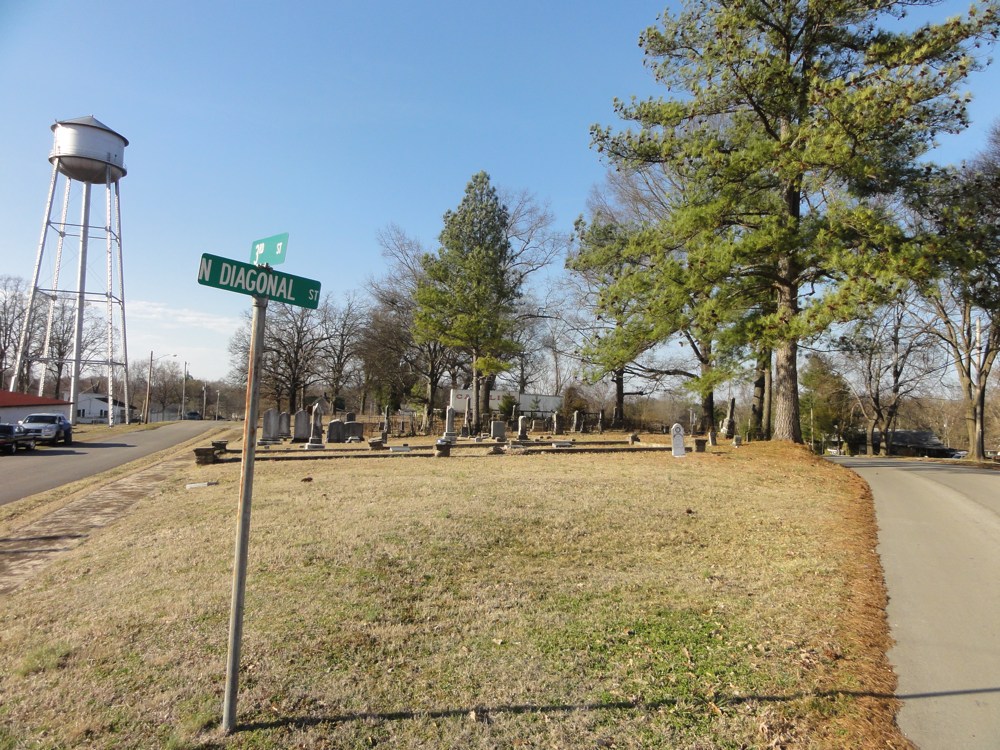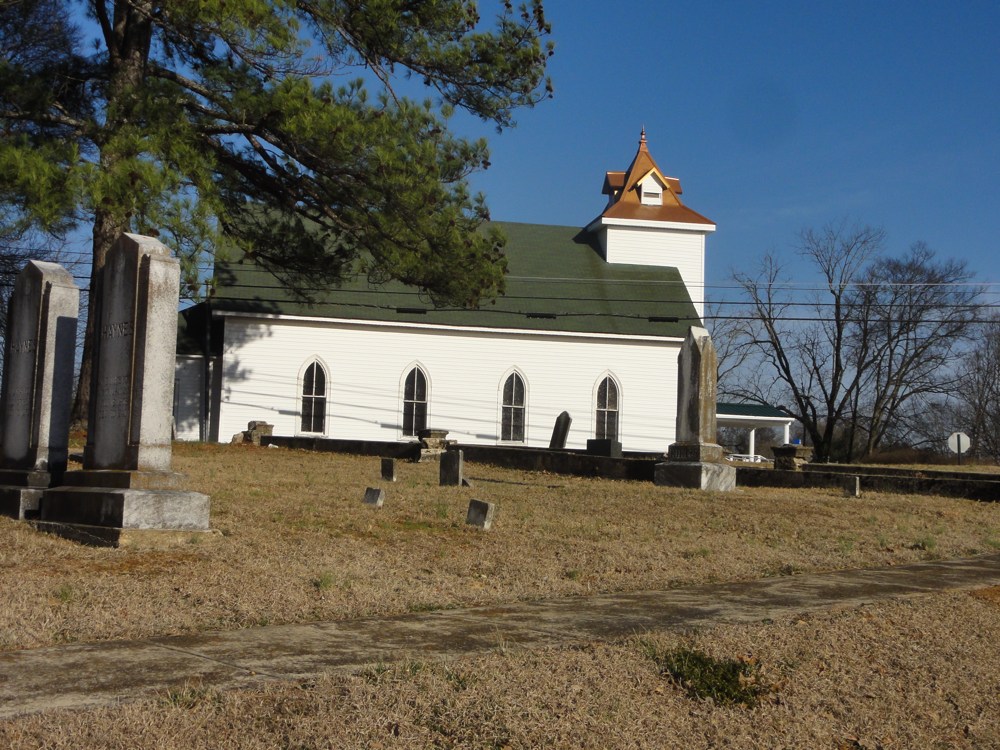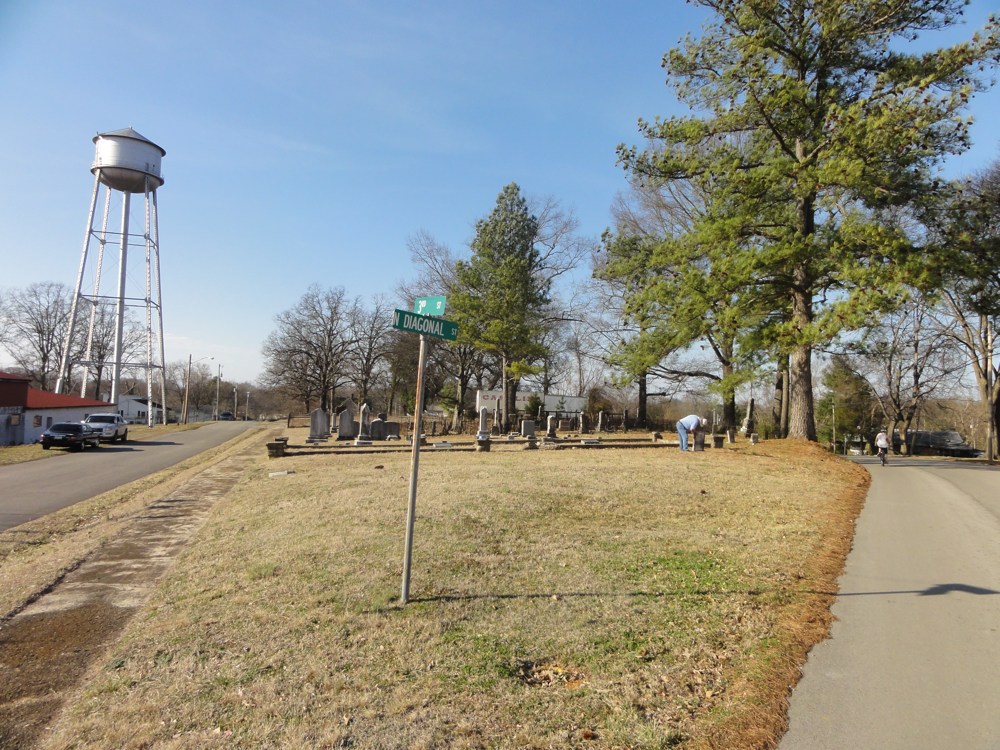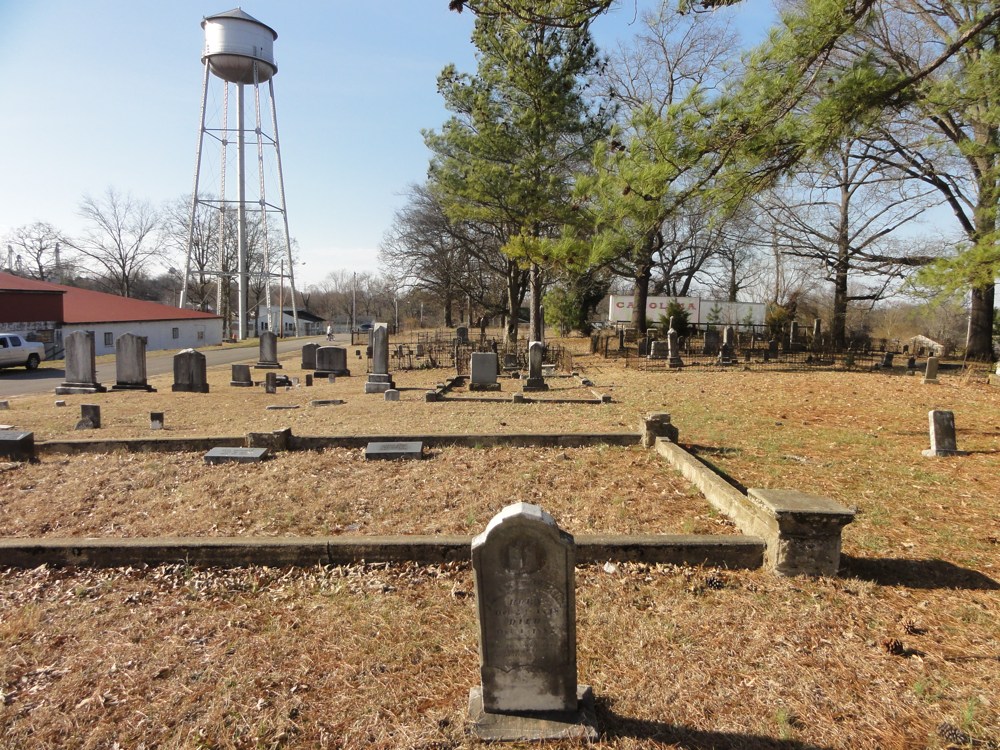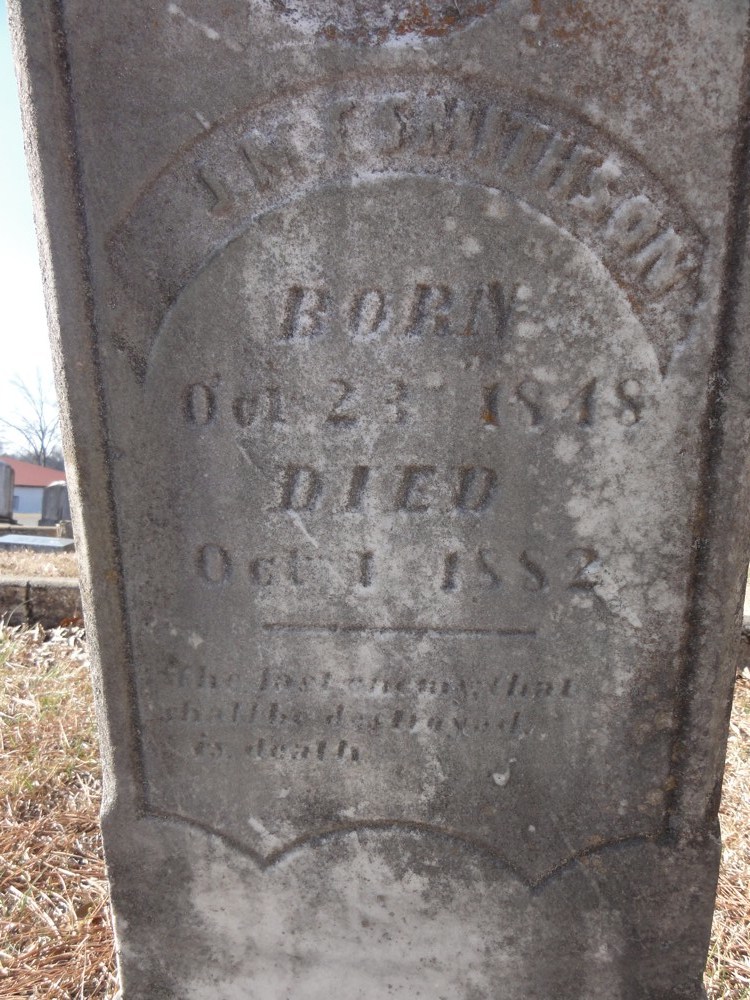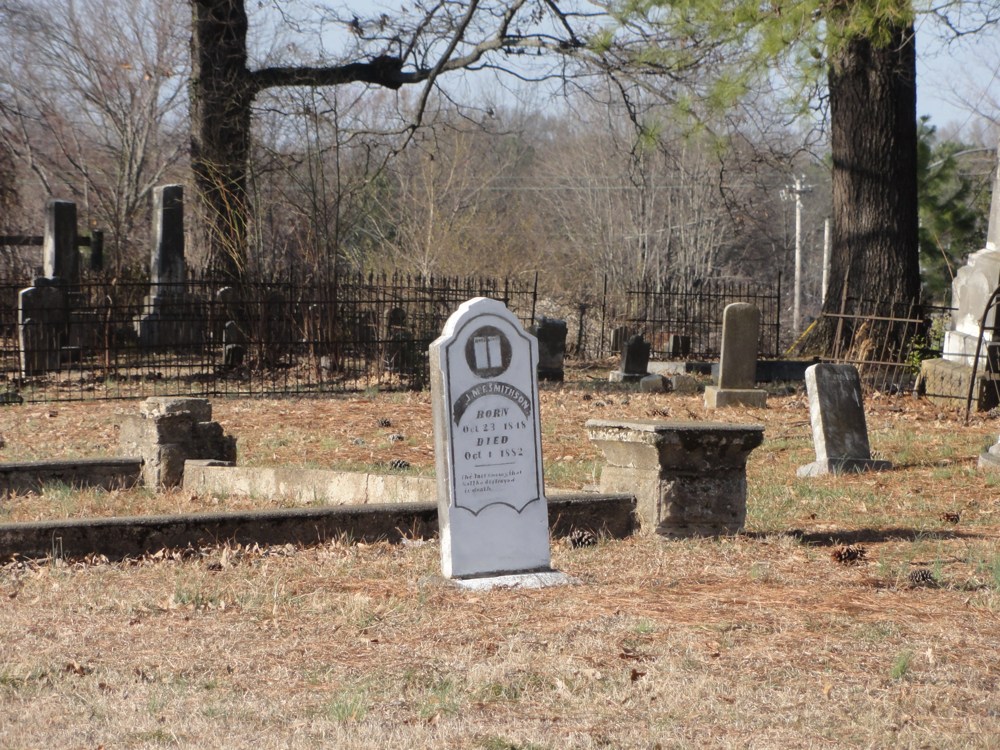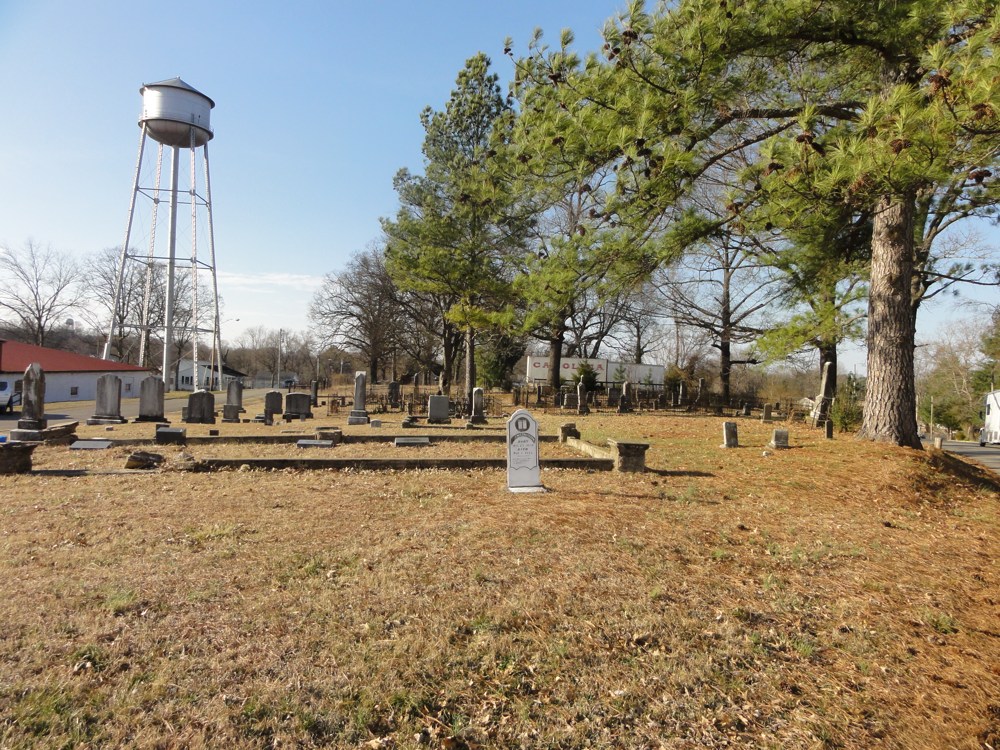John Monroe Franklin Smithson
1848-1882
![]()
The Life of J. M. F. Smithson
Shakespeare put into the mouth of one of his characters the following truth:
Sweet are the uses of adversity:
Which, like the toad, ugly and venomous,
Wears yet a precious jewel in his head.
The subject of this sketch is a splendid illustration and concrete example of the above truth. No preacher of the gospel has come from such lowly walks of life and through so many hardships and reached such eminence in the brotherhood as J. M. F. Smithson. In addition to the hardships that he endured, he had a serious handicap which would have prevented a less courageous man from making any success whatsoever. He was tenderly called "the blind preacher."
He was born in De Kalb County, Tenn., on October 23, 1848. He was the son of John Smithson. He was born and reared in the rural section of the rugged hills of De Kalb County, and was a genuine type of the mountain backwoods boy. His father was not so religious, but his mother was an unusually intelligent woman who possessed a deep religious nature. Brother Smithson was greatly indebted to his mother for his wonderful mind, his generous heart, and his firm determination. His opportunities for obtaining an education were very limited. He attended school only a few months in the proberbial "unhewn-log cabin." This gave him very poor advantages for an education.
The dreadful Civil War came on and deprived him of any further education. He enlisted in the Confederate Army and served as a "scout and courier" in the cavalry commanded by Gen. John H. Morgan. He saw service for several months. Smallpox broke out in the army, and young Smithson was stricken very sick. He was brought to his father's house, where he lay sick many weeks before he recovered. For seven weeks he was entirely helpless, and his people were hopeless in regard to his recovery. He at last recovered, but never saw anything thereafter; he had lost both eyes and was totally blind. This prevented his serving any longer as a soldier. Many would have given up with such a discouraging handicap, but not so with young Smithson. He believed that he could do something, and he resolved to make an honest and earnest effort.
A younger brother led him by the hand to the little town of Smithville, the county seat of his native county. On arriving there, he bought an ax on a credit. Then he shouldered the ax and went into the forest to cut and cord wood. His younger brother assisted him in hauling the wood to town, where he sold it and paid for his ax and had a little money left. Soon after this he and his younger brother walked more than sixty miles to Nashville, where he went searching for an opportunity to do something. He soon purchased a wood saw and found work enough to keep him busy. Day after day he labored cheerfully and received good wages for honest work. Next he became a book agent. He gladly accepted the terms for selling books and laid aside his wood saw and shouldered his book satchel and appeared on the streets of Nashville as a bookseller. He became quite popular and successful in this work. Possibly many bought his books through sympathy for him and to help him make an honest living. He became a successful agent and made many friends and much money. Next he became an auctioneer, and he soon became popular in that field of endeavor. He had a fine physique, a strong and musical voice, and a keen sense of humor-a combination which helped to make him a good auctioneer. In this work he formed a habit of jesting which he carried through life.
He was very successful as an auctioneer and had now established enough self-confidence to cause him to think he could make a success at anything he endeavored to do. He entertained a ray of hope that a good oculist might help restore his sight. With this in mind, he took the money which he had saved and went to Louisville, Ky., and then to Cincinnati, Ohio, and received treatment from the best physicians at both of these places. He spent all of his money and returned with no hope of ever having his sight again. He went back to his old home in De Kalb County a little discouraged. He had been away from home three or four years. During the time he was away from home he had learned much by his contact with men of affairs and his mind had gathered a large stock of information. He desired to improve his education. While at home he joined the Cumberland Presbyterian Church, but soon became dissatisfied. Brother Jesse L. Sewell was preaching at Old Hebron, about nine miles north of McMinnville, Tenn., and young Smithson attended every service. He was anxious to learn and would hear anyone speak who could teach him. The last day of the meeting young Smithson made the good confession and was baptized into Christ by Brother Sewell the same day. He began meeting with six or eight brethren in the humble home of Ezekiel Watson. He soon gave promise of those wonderful gifts of exultation and song with which he charmed and thrilled the hearts of hundreds. His zeal increased day by day, and he began to long to preach "the unsearchable riches of Christ."
In the fall of 1868 he married Miss Sallie Boren. This was a fortunate thing for Brother Smithson, as she was a true, devoted wife and a great help to him in his work. His first efforts at preaching were made in Cannon County, Tenn., not very far from where he was reared. He preached wherever he could find a place. He often walked many miles to schoolhouses, where he had large audiences to hear him. Many attended through curiosity to hear" the blind preacher," and went away with new truths impressed on their hearts. He improved very rapidly and soon became a very popular and successful preacher. In August, 1869, he preached at Mechanicsville, in Cannon County, and had a number of additions. His fame spread abroad, and he soon had more work than he could do. He held a very successful meeting at Sparta, Tenn., in January, 1880. The same year he preached at the Church Street Church, in Nashville; at Salem, in Franklin County, Tenn.; and at Hopkinsville, Ky. We find him also preaching in 1880 at Martin and other points in West Tennessee. In June, 1880, he made a trip to Texas, preaching at Paris, Sherman, Waco, Corsicana, and other points in that State. Everywhere he went he was received with much love. His field of activity the following year widened and he labored persistently throughout the year. In 1881 we find him holding meetings at Lewisburg, Tenn.; Franklin, Ky.; Hartsville, Tenn., and at Franklin College. Everywhere his meetings resulted in many additions to the church.
He had wonderful memory. Those who preached with him have said if he could hear a chapter read three times he could repeat verbatim the entire chapter. Kind friends and brethren read the Bible to him until he became very familiar with its teachings and could quote much of it in his sermons. He was a logical reasoner and presented his sermons in a very logical manner. His strongest elements as a preacher were his exhortations and songs. He was warm in exhortation, fervent in spirit, and melodious in song. He could sing the gospel songs with such sweetness and pathos that the most confirmed sinner would be touched. Many were brought into the church through these gifts of his. He was firm and true to his conviction. Whatever his hands found to do, he did it with all his might. In his associations and relations with his fellow men, he carried a high sense of honor. His good sense of humor made him a very companionable man, and all sought his association.
While preaching at Philippi, in Maury County, Tenn., he became very sick and had to close the meeting. For several years he had suffered with some disease of the stomach. He had made his home for some years at Decherd, Tenn.; and when he became sick he closed his meeting and went home, never to leave again. He seemed to realize that his work was over. He said to a brother who was visiting him that he would not recover, and: "When I am dead, let no man say that I ever faltered in my faith, or ever doubted the power and purity of the gospel as I preached it. However unworthy I may be, I have every confidence in my Savior and his word." He died, as he wished to die, on the Lord's day—October 1, 1882. He was denied many of the blessings and privileges of his more favored brethren, and yet, as a proclaimer of the gospel, he was the peer of the best. He was loved for his great zeal for the church, and hundreds were brought into the church through his preaching. Brother E. G. Sewell wrote of him at the time of his death and said: "We have received the sad tidings of Brother J. M. F. Smithson's death. This will send grief and sorrow to many hearts, that one so strong and bold in defense of the faith should fall so early in life. This is another reminder that nothing earthly is permanent." Brother Smithson came from obscurity, through great adversities and serious physical defects and infirmities. to the greatest height in the estimation of his brethren. The present generation should know of him and his work.
-- H. Leo Boles, Biographical Sketches of Gospel Preachers, pages 379-83.
![]()
1870s Report On the Work Of J. M. F. Smithson
We learn by a private letter from Elder J. M. F. Smithson, the blind preacher of Dechard, Tennessee that he will preach at the Christian Church, in this place on the third Sunday in March. The week preceding he will preach at Dunlap and Anderson's Bend. The preaching at Centreville will, perhaps, continue a week. "Hickman Pioneer" - March 22, 1878.
THE REVIVAL -- The protracted meeting held at the Christian Church at this place by Elder J. M. F. Smithson, the blind preacher, has been quite a success. Elder Smithson is an able preacher -- knowing the New Testament Scriptures, it seems by heart. He is also a splendid singer. We are told that he went blind from smallpox when about fourteen years old. He was up to that time a wild, reckless boy. Since the loss of his eye-sight he has devoted his whole attention to the study and work of the ministry. The meeting commenced on Sunday at 11 o'clock A. M. On Monday at the morning service, seven persons joined the church and 3:30 o'clock that evening were baptized in Indian Creek, by Elder John M. Morton from Maury county. The new members were Miss Amelia Easley, Miss Mattie Tom Walker, Miss Maggie Shipp, Miss Jennine Nicks, Dr. Norris, Mr. Billie Nicks and Mrs. Billie Cooper. Monday night Mr. John Nicks and wife joined and on Tuesday were baptized by Elder Halbrook. Tuesday night Miss Jennie Cooper, Mr. James Murphree and Mr. J. T. Simpson joined and on Wednesday were baptized by elder Smithson.
-"Hickman Pioneer" - Feb. 22, 1878., As reported on (Find-A-Grave)
![]()
Reminiscences Of The Blind Preacher
Twenty-one years ago, J. M. F. Smithson, the blind preacher, crossed the mystic river, the giant-like body ceased to be animated, and the voice which was once as musical as the tones of a harp was forever stilled. His career as a preacher, covering the short period of fourteen years, was a remarkable one; few men in the same period ever attained to greater eminence. This is the more wonderful when it is remembered that at the age of fourteen years, when his eyesight was destroyed by smallpox, he had obtained only the simplest rudiments of learning. For six years following this calamity his time was spent in chopping cord-wood, selling boos, and as an auctioneer. About this time, under the preaching of Jesse Sewell, he obeyed the gospel, and his career as a preacher soon began. His protracted meeting was at Flat Creek, Tenn., he being brought there by Bro. Smith Bowlin. His success in that meeting foreshadowed his future eminence.
While inclined to discuss speculative questions, Bro. Smithson never made a hobby of these; his preaching was mainly along practical lines. Considering his opportunities for learning, his choice of words, his pronunciation, and his knowledge of grammar were phenomenal. I was with him much in his earlier days, and read to him a great deal. When he wished to learn a chapter or a hymn, I would read it aloud to him once; then I would again read aloud, and he would repeat the words after me; and he could then repeat it alone, with scarcely a mistake.
About that time the Fillmore’s were in Tennessee drilling the churches in vocal music. I think it was his coming in contact with them that led him to cultivate his gift of song. He became almost a prodigy along that line. His solos after prayer and before preaching became noted. I would go many miles to hear “The Ninety and Nine” sung as he used to sing it. Once, when he sung that song during a meeting at our church, an old aunt of mine, a life-long Methodist, was present. The next day she was there again. Before the service began she said to me: “Please ask your preacher to sing that ‘sheep son’ again.” He did so, but only after I had announced that he repeated it by request. He learned all his pieces by note. One day I asked him: “I have my wife to tell me, first, what figures are at the beginning; then she tells me the notes as they come—whether whole notes, half notes, or quarter notes; then she goes back and tells me what line or space each note occupies. Then I sing it by note; after that I learn the hymn.” I asked: “How long does it take you to learn a piece that way?” He replied: “It takes a good while—two hours, perhaps—to learn the four parts.” “Two hours!” I exclaimed. “I do not believe that I could learn a piece in two years in that way.”
Bro. Smithson was an inveterate joker, and woe betide that man who fell into his hands in this respect! He was much given to levity—too much so, I thought; and so I told him on one occasion, but I never did it again. He said: “I can not keep my mind on my preaching work all the time; it must have rest. When my mind is not occupied with thoughts of my work, It naturally reverts to my misfortune; so I indulge in this levity to keep from thinking of my condition. Here I am, practically helpless; though a great, stout man, I have to be led wherever I go. If I allowed my mind to run along that line, I would go crazy.”
Bro. Smithson was a man of great originality, but could use to good advantage material that he had gathered from others. On one occasion, after closing his discourse, he gave an opportunity for any one to file objections to anything he had preached. A young preacher, allowing his egotism to outrun his prudence, arose and said: “I have no objection to anything that you have preached, but I do not like your doctrine.”
“Well,” said Bro. Smithson, “what is the matter with it?” “You teach nothing is baptism but immersion. Now, I have found but one case of immersion in the Bible; and that is where the devils same out of the people and went into the swine, causing them to run down into the sea and be drowned.” Of course, this created a laugh. When the noise subsided, Bro. Smithson, who was still standing, said, in a strong, deep voice: “The brother is right. There is a case of that kind on record, but that was an experiment with the devil; and, losing his bacon by it, he and all the folks have been sprinkling ever since.” The laugh was then on the other side.
What seem to be great misfortunes to us, we often find to be for our good. Bro. Smithson often said that the loss of his eyesight turned out for his good. He said that if it had not been for that, he would have been a leader among the boys in everything that is wicked. Taking into consideration his environment and the opportunities which he had, no other man known to me ever developed along commendable lines as he did.
—J. D. Floyd, in Gospel Advocate, Octographic Review, March 8, 1904, page 3.
Note: Original source not verified. After several searches of the digital version of the Gospel Advocate as the original source noted in the Octrographic Review article, the original appearance of the piece could not be located. - (sdh-05.07.2024)
![]()
Directions To The Grave of J. M. F. Smithson
Dechard, Tennessee was the home, and now resting place of the remains of the blind preacher, J. M. F. Smithson. Dechard is located near Manchester in south central Tennessee. From I-24. Take Exit 127 and head west on Hwy. 64 toward Dechard. When arriving in town turn right on Hwy. 50 (Warren Chapel Rd.) The road will dead in to Main St. Keep following Hwy. 50 as it makes its way into town on E. Main St. (Hwy.50). In town turn right on Horton St. Take the first right on N. Diagonal St. and the cemetery will be on your left. J. M. F. Smithson's grave is the first grace facing the road, across from the church building where he preached so many years. (The church is now a local denomination.)
GPS Location
35.211260, -86.076688
![]()
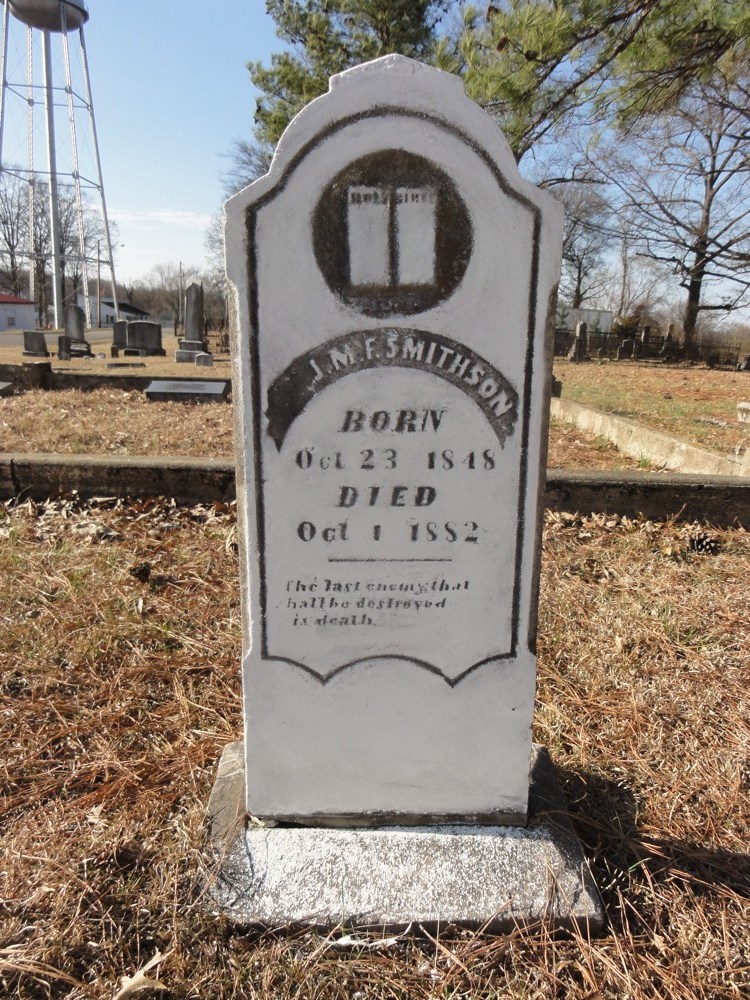
J. M. F. Smithson
BORN
October 23, 1848
DIED
October 1, 1882
The last enemy that
shall be destroyed
is death.
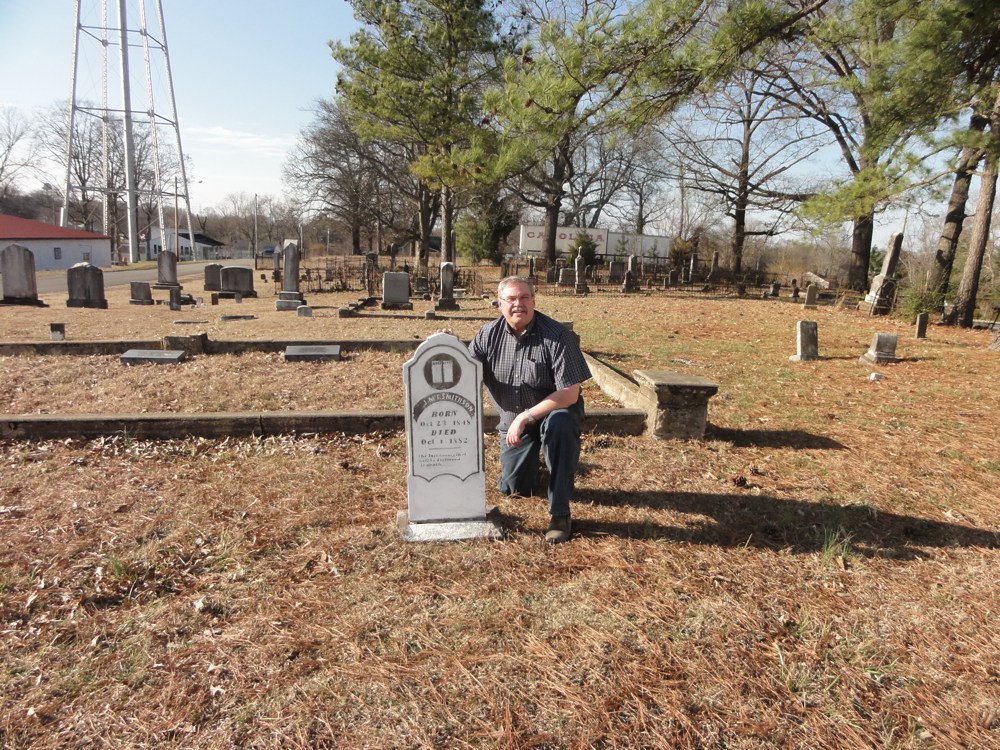
Scott Harp next to the grave of J. M. F. Smithson
![]()
Photos Taken 02.23.2014
Webpage produced 10.30.2014
Courtesy of Scott Harp
www.TheRestorationMovement.com
Special thanks to C. Wayne Kilpatrick for the assistance in procuring location and photos of the grave of J. M. F. Smithson. Wayne traveled with me in late February, 2014 while making our way to Knoxville for a lectureship program.
![]()

